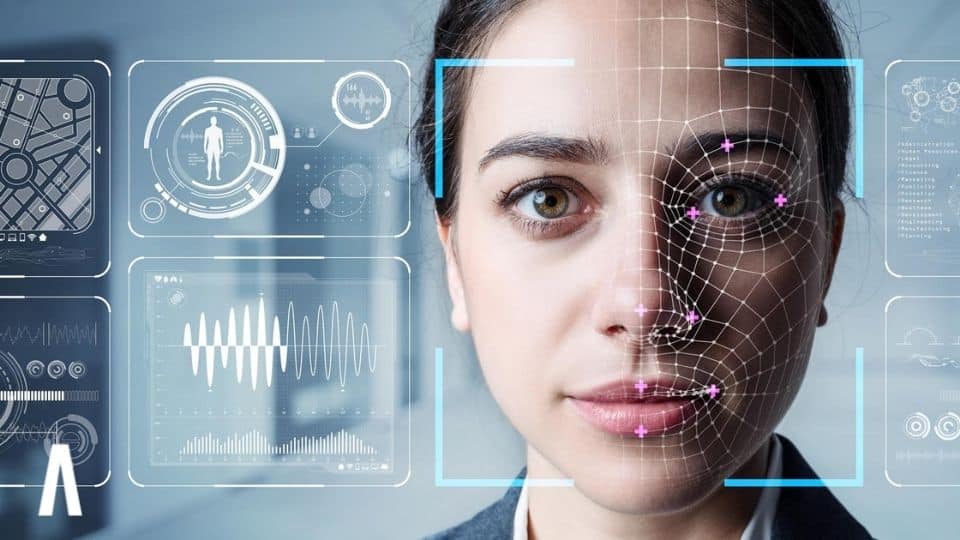3 Amazing Ways AI Could Help Mental Health
Blog | July 7 2022 | Alldus Recruitment
According to Mental Health America survey, 19% of adults in the U.S. which is equivalent to 47 million Americans are experiencing a mental illness with Mental Health Europe also reporting a rise in poor mental health in young adults due to the Covid-19 pandemic.
The impact that Artificial Intelligence can have on mental health could be significant, provided that further research is backed. in this article, we look at some of the incredible ways that AI can help improve our mental health.
Early detection
Early detection of mental health difficulties is of crucial importance to the successful treatment of the patient. AI can already detect markers that indicate a high probability of cancer at very early stages. What if AI could flag up similar warning signs about your mental health, simply by listening to you?
Traditional practice in mental health largely relies on the individual to observe and self-report indicative changes, alongside the observations of mental health professionals. AI could notice relevant symptoms and act as an early detection mechanism as demonstrated by two recent case studies.
An app called Companion passively monitored a veteran’s phone 24/7 by listening to the sound of the user’s voice and their frequency of mobile phone usage. The changes in inflexion, the energy of pitch and amount spoken, as well as phone usage provided the app with a variety of behavioral indicators. The AI system then used these indicators to detect crucial changes in the user’s mental health.
Similar to Cogito, IBM also harnesses AI as an early detection mechanism for mental health. In two studies, IBM built an AI that detected differences in speech patterns between high-risk patients who develop psychosis and those who did not. To detect this, they analyzed the patient’s speech for different indicators, such as coherence of speech and ideas. It then built a predictive model for the onset of psychosis.
Easy accessibility
Its no secret that mental health services around the world are seriously lacking and those that are available are very inadequate. Approximately 45% of the world’s population in 2014 lived in a country where there was less than one psychiatrist for every 100,000 people. It is clear that access to treatment is a luxury that many people around the globe don’t have or cannot afford.
On top of improving access to mental health treatments, AI can play a big role in personalized treatments. For example, Ginger.io covers both. An online platform that uses AI and machine learning alongside a staffed clinical network, Ginger.io tailors it’s suggestions to the needs of the user and provides access to a variety of treatments.
The algorithm might suggest that the most suitable course of action is cognitive behavioral therapy (CBT). CBT is a popular talking therapy that aids to reframe the way you think and behave, to change the way in which you address problems. It usually requires several visits to a professional over an extended period of time, which might be unachievable because of the user’s location.
Other treatments the user might be referred to are mindfulness training, resilience training or being escalated to a licensed therapist or board-certified psychiatrist, depending on the severity of symptoms. All signs indicate that AI is set to become a key driver in lowering barriers of access to advice, services and personalized treatment.
Lowered fear of stigma
“A survey from St Patrick’s Mental Health Services found that two thirds of respondents said being treated for a mental health issue was a sign of personal failure.”
The stigma surrounding mental health can act as a strong deterrent to seek help and speak out. Some people affected may not wish to discuss their situation with other individuals, including trained professionals, for fear of stigma. In the long run, this can contribute to a worsening of the person’s situation.
As opposed to fellow humans, an AI does not necessarily form part of any wider social construct with all the associated cultural norms and expectations. The AI is likely perceived as non-judgmental, non-opinionated and overall neutral.
The opportunity to confide in an AI system has been within reach for quite some time. ELIZA, a basic NLP program developed in 1966, reenacted the behavior and responses of a psychotherapist. An early predecessor to many subsequent chatbots, it’s creator’s intentions can be seen as particularly aligned with those of at Woebot.
Woebot works in a similar way to an instant messaging app. Created by clinical research psychologist Dr. Alison Darcy and integrated on Facebook, Woebot aims to replicate the open ear of a trained professional. It learns about the individual and tailors its questions to their situation through repeated conversations.
Woebot doesn’t tire of a lengthy conversation; it is always available to listen and it is perceived as non-judgmental, no matter what thoughts and worries the user expresses. In this light, Woebot can contribute to increased well-being by reducing isolation, providing an instant channel of communication and allowing for anonymous self-expression.
AI may not be a silver bullet for mental health yet, but it has all the indicators of making a significant contribution in the field.
If you’re interested in exploring our latest Data Science & ML jobs within the Healthcare sector, check out our live vacancies or upload your resume today to keep up to date with all the latest opportunities.
share
related articles
Women in AI: Bridging the Gap
Despite huge advancements in AI research, the field still lags in another key area of societal progress, gender equality. With women accounting for just 22% of professionals in the field, we examine the steps needed to address this inequality and how it would also benefit the technologies themselves
Why SQL is the base knowledge for data science
As a programming language, It's a simple skill to learn, but a very valuable one. A walk in the park compared to Python or R.
Why NLP is the future of E-Commerce
There are great benefits to using NLP in eCommerce. The world of business would be greatly benefited from in-depth insights that are controlled by AI. It will help in increasing customer satisfaction rates, improve the revenue curve & ultimately transform the future of business operations.




